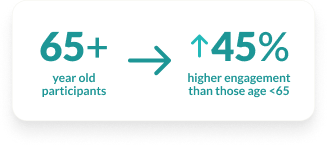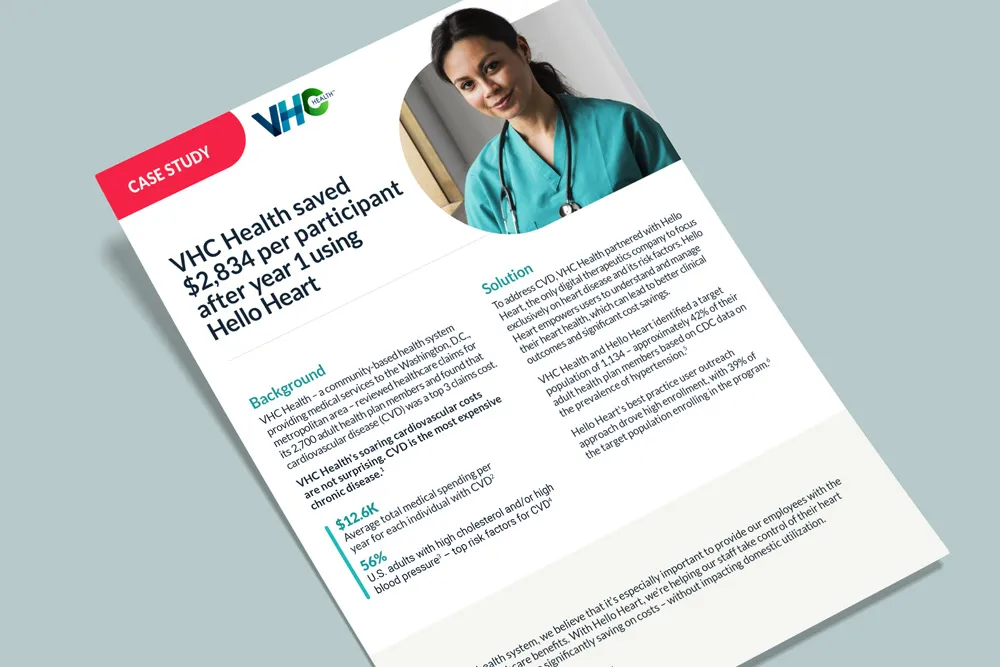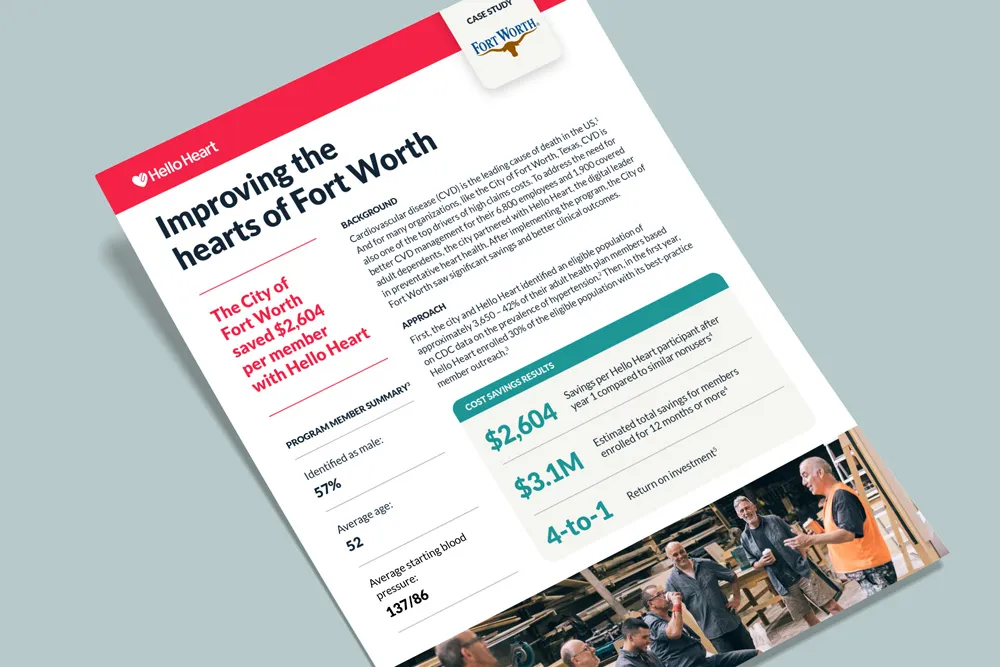Research shows that Hello Heart significantly impacts cost savings and member health, proving that amazing things happen when you put hearts first.


A study with over 28,000 participants using Hello Heart saw a 21 mmHg average reduction in systolic blood pressure over 3 years for high-risk members. Blood pressure improvements like this have major impacts on the risk of heart attack and stroke.



As shown in an independently validated report, Hello Heart members typically see their primary care providers more, visit the ER less, and spend fewer days in the hospital.

A study presented at this year’s American College of Cardiology Annual Scientific Session found that participants aged 65+ had strong engagement with Hello Heart, resulting in even greater reductions in cholesterol and weight than younger members.








Wayne
Hello Heart Member
Our team will get back to you as soon as possible.